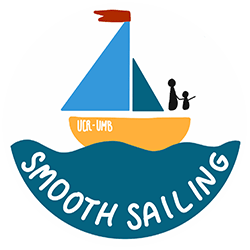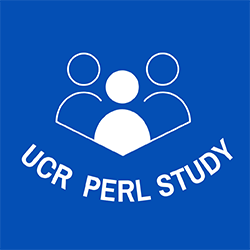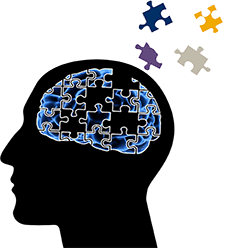
Smooth Sailing I
Under the direction of Dr. Jan Blacher, Professor in the Graduate School of Education, the SEARCH center is currently analyzing data from nearly 200 children diagnosed with Autism or ASD between the ages of 4-7 years old. The goal of the study is to identify factors that contribute to positive school experiences in early schooling for children on the spectrum.
One of the key factors identified was a positive student-teacher relationship. This is especially important for those young children with ASD in general education classes (that is, mainstreamed for 50% or more of the day.)
FUNDING SOURCE: Institute of Education Sciences (R324A110086)

Smooth Sailing II
The goal of this follow-up study to Smooth Sailing I is to develop an intervention to improve student-teacher relationships. What is unique to this program is the involvement of teachers as consultants who advise on the content, direction, usability and feasibility of the program. Teachers also are involved in pilot testing the intervention.
FUNDING SOURCE: Institute of Education Sciences (R324A180105)
For more information about Smooth Sailing (I and II), please visit: https://smoothsailingstudy.org/
Follow us on Facebook: https://www.facebook.com/SmoothSailingStudy/
View Sample Publications
A sampling of Smooth Sailing publications:
- General education teachers’ perceptions of autism, inclusive practices, and relationship-building strategies (Bolourian et al., 2021)
- Gene x responsive parenting interactions in social development: Characterizing heterogeneity in autism spectrum disorder (Caplan et al., 2021)
For a full list of Smooth Sailing publications, please visit: www.smoothsailingstudy.org/publications

Collaborative Family Study (CFS)
The Collaborative Family Study (CFS) is a longitudinal study (funded by NICHD) between UCR and UCLA which consists of over 200 families. The current follow-up study is led by Drs. Jan Blacher at UCR and Bruce L. Baker at UCLA. The research focus is on the mental health and well-being of young adults and parents during this transition time. The participants are young adults with autism, intellectual disability, or typical development, between the ages of 21 - 24 years. A portion of these young adults and their parents have been involved in this longitudinal study since it began in 1998-99.
FUNDING SOURCE: National Institute of Child Health and Human Development (R01HD034879); University of California, Riverside
View Sample Publications
A sampling of CFS publications:
- Behavior disorders and social skills in adolescents with intellectual disability: Does co-morbid autism matter? (Baker, & Blacher, 2021)
- “I don’t feel different. But then again, I wouldn’t know what it feels like to be normal”: Perspectives of adolescents with autism spectrum disorder. (Berkovitz et al., 2019)
- Predictors of anxiety symptom trajectory in children with or without ID from early childhood to adolescence (Rodas et al., 2020)
For a full list of CFS publications, please visit: https://searchcenter.ucr.edu/collaborative-family-study-publications-publications

The Parent Experiences of Remote Learning (PERL) Study
COVID-19 has caused an unprecedented disruption to K-12 education. To prevent the spread of coronavirus, in-person instruction was suddenly replaced with remote learning, or the education of children at home. Yet, the existing research on COVID-19 has overlooked the role of distance learning in contributing to health outcomes and disparities. The PERL Study seeks to understand family adaptation as a function of family stressors, resources, and perceptions of remote learning with a highly diverse sample of parents of school-aged children in the Inland Empire. Findings from this research will contribute to our understanding of the underlying mechanisms through which disparities emerge, with the goal of elucidating pathways to family resilience.
FUNDING SOURCE: Center for Health Disparities Research (HDR@UCR) (https://healthdisparities.ucr.edu) NIMHD award U54 MD013368. Sub-Award: J. Blacher, PI; Y. Bolourian, R. Lee, co-PIs.
This study is ongoing (2022).
Publications will be posted after the study is complete.
PEERS® Study
The goal of this study is to explore the effects of a well-studied social skills intervention on brain activity. We will be using the PEERS Intervention, and measuring adolescents' brain activity before and after they participate. This intervention involves the participation of young teens in a weekly social skills group; their parents, too, participate in a simultaneous group for 12-16 weeks. Both teens with ASD and neurotypical children were recruited for participation in the brain activity portion of the study.
View Sample Publications

EEG
Under the direction of Dr. Katherine Stavropoulos, Assistant Professor in the School of Education, The Social Cognitive Developmental Neuroscience (SCDN) Lab aims to conduct studies that explore how brain activity is related to behavior in children with and without ASD, as well as how anxiety contributes to social challenges in ASD. In addition, the PEERS intervention (described above) is used to measure adolescents' brain activity using EEG before and after they participate. Website: https://sites.google.com/view/scdnlab/home
Follow us on Facebook: https://www.facebook.com/UCRSCDNLab
View Sample Publications
A sampling of EEG publications:
